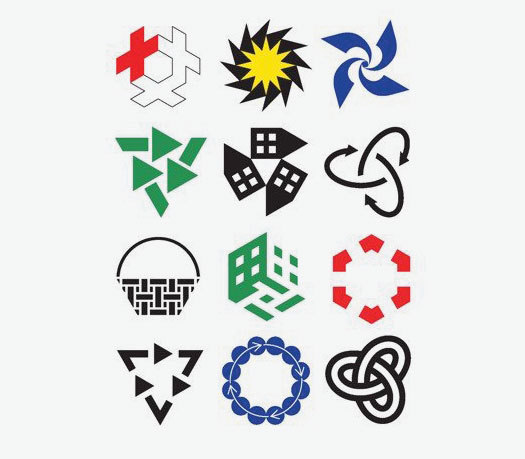
I dislike the word “glocal.” It's an ugly word used by high altitude thinkers to add zest to another word — local — that they find tedious on its own.
I also dislike the word “creative.” It tends to be used by uncreative people to describe people like themselves. Its bastard child, “cultural creative,” is twice as bad because…well, you fill in the gaps.
Now a new word has come along to bug me: “Sustainism.” It adorns a new book that celebrates the glocal and the creative. Not a good start.
The word sustainism has been invented by two design eminences from The Netherlands, Michiel Schwarz and Joost Elffers. They've created the new word as a “replacement for modernism.”
Sustainism as a new cultural era is described in two ways. The first is a series of quotes and aphorisms, two or three to a page. Familiar words flutter across the folios: connected, local, digital, ecology, community, interface, collaboration, crossover, social and so on.
The book's second channel, if we may call it that, is a confetti of colorful logos (including the ones above). These intersperse the aphorisms. The effect is visually pleasing — the book reminds me of an illustrated diary I had as a child — but I reached the end feeling I had read a contents list, but not the content itself.
The idea, say its author-designers, is that Sustainism's “graphically dynamic aphorisms, quotes and symbols” capture the zeitgeist of our culture and “name the new age.”
I'm not so sure. The word sustain — whether attached to an ism, or an ability — speaks too much, to me anyway, of bailing out a leaking boat as it drifts towards a waterfall. It's got to be done, but it's not a joyful prospect.
Sustainism is rather like a butterfly collection. Many of its specimens are renowned, and some of them are beautiful — but they are also — how to put this delicately? — lifeless.
Sustainism, in consequence, achieves the opposite of its ambition. It's a very Modern book.
Sustainism Is the New Modernism: A Cultural Manifesto for the Sustainist Era by Michiel Schwarz and Joost Elffers is published by Distributed Art Publishers.


Comments [22]
02.09.11
10:43
Maybe we should just hope in on this early to sustainism experts and charge high fees for consulting services. It seems like big businesses love this kind of stuff.
02.09.11
10:59
Never heard the term glocal but I agree, it sounds right up its own a***e.
02.09.11
11:05
02.09.11
11:12
Yes to real action implementing
@uptomontreal
02.09.11
11:18
02.09.11
12:06
02.09.11
12:11
02.09.11
12:19
02.09.11
12:52
02.09.11
06:33
02.09.11
10:08
By definition, a well-formed thought is easily communicated. Words such as sustainism, glocal, even "connected, local, digital, ecology, community, interface, collaboration, crossover, social" distance us from concepts. These words are used constantly because the concepts they (attempt to) describe are incredibly complex. However, this should not be an excuse to avoid finding appropriate language. Slippery language does not aid our understanding. It gives us an excuse to not pay attention, and launches an earthbound concept--like pollution--into the stratosphere of meaninglessness. Unfortunately, our environment and ability to live peacefully together are not causes that we can afford to ignore.
02.10.11
11:29
02.10.11
11:32
02.10.11
03:26
Apologies JT, I think your article could do with more definition.
On reading your article, JT, I felt like I was reading a series of random unrelated and unresolved points - eew! - sorry sorry sorry - that's just mean isn't it? I am just too needy, aren't I? Needing more words, fleshy details and fuller arguments. And plus, I think I have had too much caffeine today.
But seriously now, in defence of your article and the upside of this critique, I do share your reservations about these mongrelised hybrid words. So, it's all good JT - all good! Keep pushing the issue and maybe people will listen.
02.11.11
02:23
02.11.11
09:42
02.11.11
07:52
Design-er or ic: Someone who designs.
Design-ist: Someone who may or may not design, but has very strong views on design and what it "should or should not" mean and subsequent ramifications for not conforming to said views.
Design-ism: A group who has strong ideas of what design "should or should not" mean, and want to convince everyone else that their ideas are the only ones that matter — up to and including being punished for not being in on the "ism" — and are willing to form committees and other "governing bodies" to decide such. And of course, writing a "manifesto."
Hope that makes sense, will lead to further discussion and thanks for the nice article. Later…
VR/
02.11.11
10:01
And that goes double for the notion of half-formed thoughts. Who are to judge really? If we trust the author, do we not all share in interpretation? We are being precious to insist on such icy clarity in a media ecology dominated by Twitterists.
But that is not to say Sustainism hits the mark. Two years ago we yearned for a new call, since as you say, sustainability is like "baling out the boat" it is hygiene, not wisdom. We coined the term Thrivability as a response, which was also coined by at least two others in 2009. That makes it an emerging cultural theme, whether or not it actually works, it is suggestive and precise.
03.01.11
06:29
03.02.11
04:31
03.09.11
09:55
08.16.11
04:49